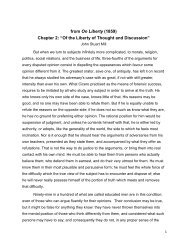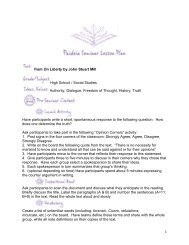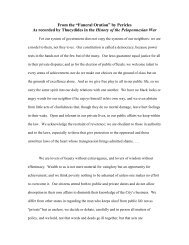Rousseau_contrat-social
You also want an ePaper? Increase the reach of your titles
YUMPU automatically turns print PDFs into web optimized ePapers that Google loves.
fertility of the climate, on the sort of labour the land demands, on the<br />
nature of its products, on the strength of its inhabitants, on the<br />
greater or less consumption they find necessary, and on several further<br />
considerations of which the whole relation is made up.<br />
On the other side, all governments are not of the same nature: some are<br />
less voracious than others, and the differences between them are based<br />
on this second principle, that the further from their source the public<br />
contributions are removed, the more burdensome they become. The charge<br />
should be measured not by the amount of the impositions, but by the path<br />
they have to travel in order to get back to those from whom they came.<br />
When the circulation is prompt and well-established, it does not matter<br />
whether much or little is paid; the people is always rich and,<br />
financially speaking, all is well. On the contrary, however little the<br />
people gives, if that little does not return to it, it is soon exhausted<br />
by giving continually: the State is then never rich, and the people is<br />
always a people of beggars.<br />
It follows that, the more the distance between people and government<br />
increases, the more burdensome tribute becomes: thus, in a democracy,<br />
the people bears the least charge; in an aristocracy, a greater charge;<br />
and, in monarchy, the weight becomes heaviest. Monarchy therefore suits<br />
only wealthy nations; aristocracy, States of middling size and wealth;<br />
and democracy, States that are small and poor.<br />
In fact, the more we reflect, the more we find the difference between<br />
free and monarchical States to be this: in the former, everything is<br />
used for the public advantage; in the latter, the public forces and<br />
those of individuals are affected by each other, and either increases as<br />
the other grows weak; finally, instead of governing subjects to make<br />
them happy, despotism makes them wretched in order to govern them.<br />
We find then, in every climate, natural causes according to which the<br />
form of government which it requires can be assigned, and we can even<br />
say what sort of inhabitants it should have.<br />
Unfriendly and barren lands, where the product does not repay the<br />
62











